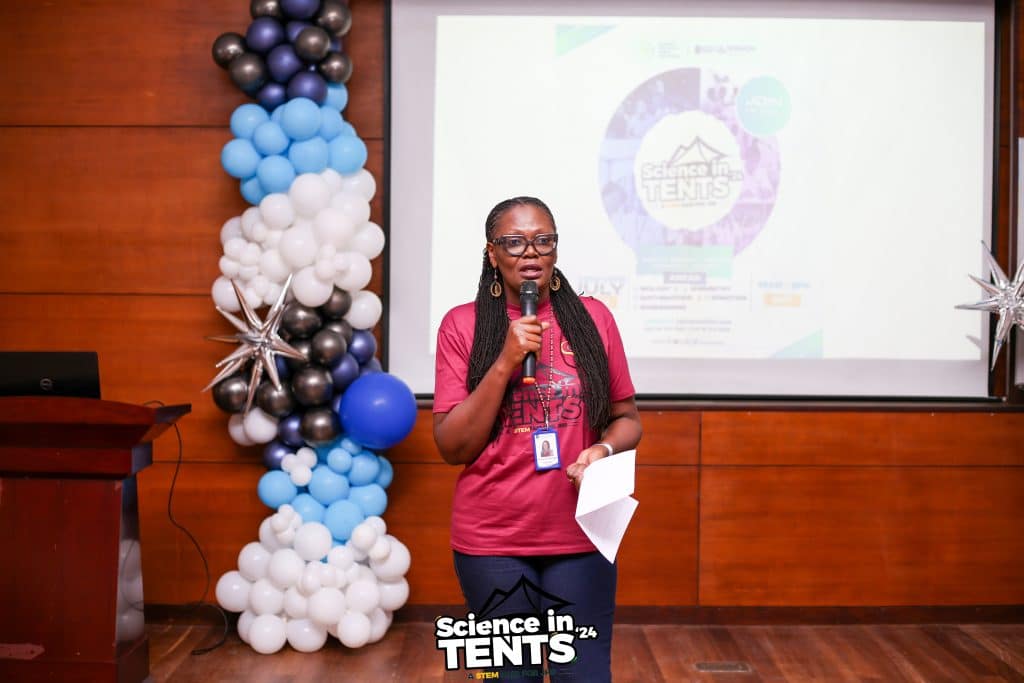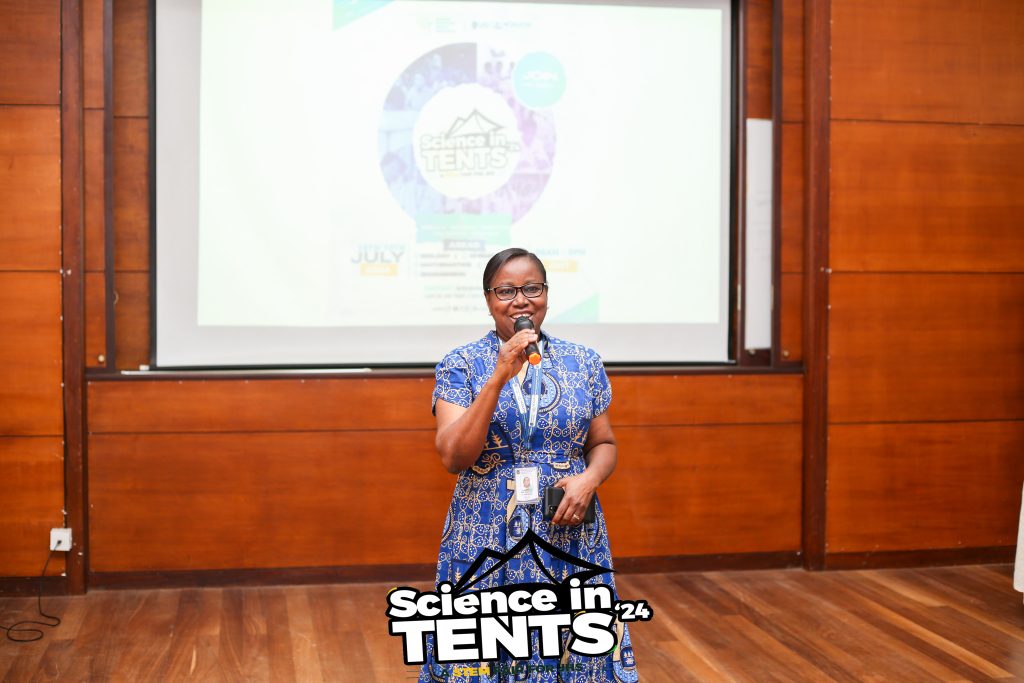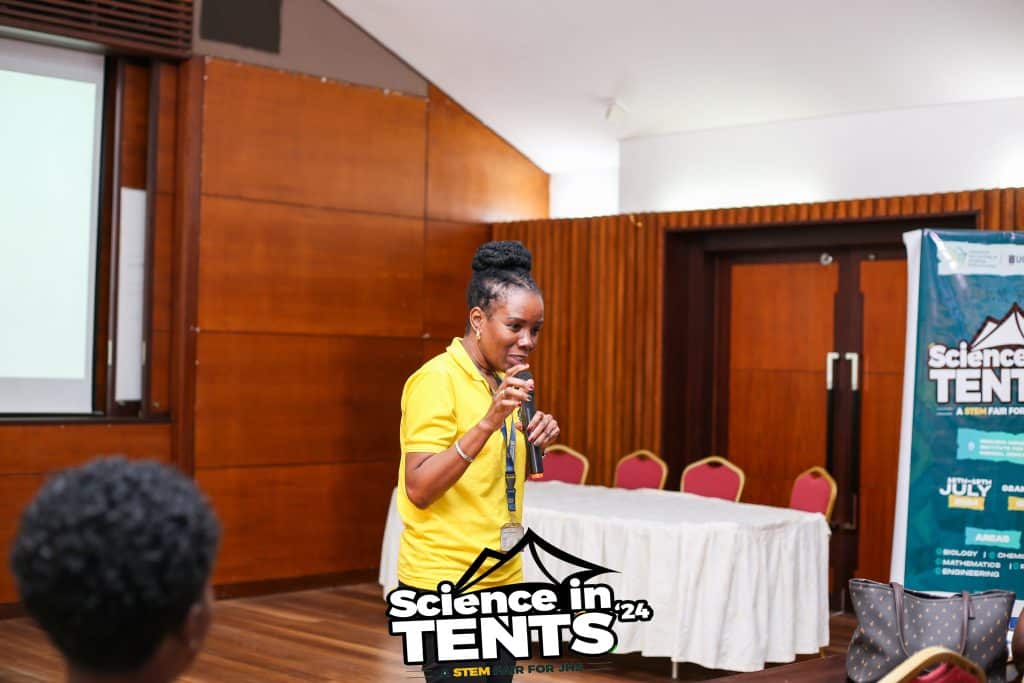Science is Doable, Science is Exciting, Science is Life: VISA-NMIMR holds STEM Fair for JHS Students
The Vacation Initiative for Africa (VISA) has partnered with the Institute to hold this year’s Science, Technology, Engineering and Mathematics (STEM) fair from 16th to 19th July 2024. The Institute hosted the four-day fair which aimed to expose underprivileged JHS students to various STEM disciplines through practical experiments and discussions, with the hope of inspiring them to pursue careers in STEM.
At a brief ceremony to open the fair, Pof. Anita Ghansah, Associate Professor at the Institute and a team lead at the hands-on fair, gave an overview of the institute and assured the students that they will benefit immensely from the fair. “Remember to apply a mindset that is ready to achieve what will be imparted this week. Believe you are capable of solving problems of our country, in Africa and of the world”. She cited prevalent issues in the country including climate change, illegal mining locally known as ‘galamsey’ among others and encouraged the students to set their minds to and work hard towards making an impact globally.

Dr. Evelyn Yayra Bonney, Senior Research Fellow at the Institute, also encouraged the students to consider science as a doable and not a difficult subject, which is one of the main barriers to many students studying the subject.

To her “Science is not difficult, science is doable, science is exciting, science is life”, a slogan she encouraged the students to repeat and always remember. She added that the students must believe that they can succeed in science and mathematics and to remember that the ethics of science is integrity and honesty, without which they cannot do well.

Professor Elsie Effah Kaufman, Dean of the School of Engineering Sciences, University of Ghana and an Engineer was one of the guest speakers and team leads at the hands-on fair. She encouraged the students to consider taking up engineering as a course to study explaining that “Things keep changing and our biggest asset is learning. The world will keep changing and we are going to get more complex problems”. She touched on the issue of galamsey, climate change, increase in population, and unemployment as issues we are facing in the world. These are complex problems that are not easy to solve, hence the students should prepare to be the problem solvers. She also reiterated the need to work in teams to solve these problems, explaining that many problem-solvers worked with others to achieve their goals.
She also emphasized the importance of training of teachers to improve their skills set, both soft and hard skills, since they are relevant to improving the children’s lives.
The tutors took the students, who were grouped into five, through various scientific topics. The first two groups crafted scale models of the Sun and Earth using creative materials, simulating the Earth’s rotation around the Sun to grasp this fundamental astronomical concept.

Some other topics were on the significance of bacterial research, including the crucial role of bacteria in our ecosystem, the advantages of beneficial oral bacteria and their functions, and practical advice on preventing harmful bacterial infections.

Other topics included microorganisms, covering a range of topics that shed light on the intricate world of microbes. The Genomics Core facility also explained the process from cells to DNA, encompassing transcription and translation. They delved into how genetic traits are passed down and how mutations lead to disorders like sickle cell anemia.
There was also a variety of science and mathematics-based institutions on hand to help tutor the eager students including the Network of Female African mathematicians, Dext Technology Limited and the Elsie Effah Kaufamm Foundation.


